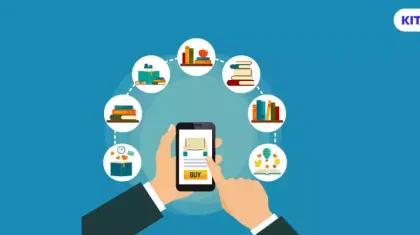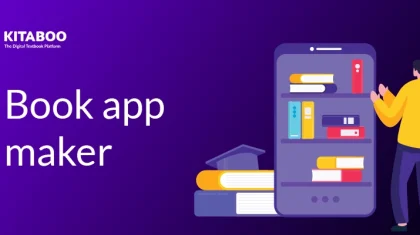
6 Best Training Methods for the Pharmaceutical Industry
Summarize this blog with your favorite AI:
Pharmaceutical Industry today, is a goldmine of opportunities. The global pharmaceutical market was estimated at approximately $935 billion in 2017 and is bound to reach $1170 billion by 2021. Every day, new technologies and scientific discoveries are pushing the boundaries of human understanding.
And for a company to succeed, the people who make it, i.e., its employees, should be updated with all the recent developments. This is why employee training in the pharmaceutical industry has become one of the major pillars of its success. This blog talks about training method for employees of the pharmaceutical industry.
Choose Mobile Learning for Training Pharma Employees
The pharmaceutical industry employs millions of people. Each employee is important for the growth of the drug manufacturing companies. It is important that they are trained to deal with the dynamic nature of the business. However, keeping the enormous group of people they employ up to date has proven to be difficult.
Major challenges faced by the companies are:
- The dearth of qualified trainers
- Speedy launch of new drugs
- Newly explored markets with needs distinctly different from older markets
- Change in legal and compliance guidelines as per geographical location, as companies expand to new countries
To meet these dynamic challenges, pharmaceutical companies have turned to delivering training content via mobile devices as a training method for employees.
What Are Some Benefits of Mobile Learning in Pharmaceutical Training?
Mobile learning is flexible in terms of location, as well as timing. As a result, it is steadily becoming a favorite among companies. mLearning can easily circumvent the challenges faced by them:
- mLearning removes the scarcity of trainers from the equation. A quality trainer can serve the training needs of hundreds of employees, across locations and time-zones. Whether sessions are pre-recorded or live, digital classrooms allow a trainer to reach out to a lot more people than a traditional classroom would.
- As new drugs get launched, mLearning allows employees to be updated rapidly with the composition, treatment, and side-effects, among other properties of these drugs. Companies can simply update the data on cloud servers which are pushed across the globe to their employees’ mobile devices. A notification is then sent across to inform every one of the update. Thus, the training material remains truly dynamic.
- Similarly, mLearning can be leveraged to teach employees about the compliance guidelines of each new jurisdiction a drug is marketed in. Using interactive guidance, employees can absorb such complex information more easily.
Guide:
How to Create Mobile-Friendly Training Content
Why Mobile Learning Is the Most Effective Training Method for Employees of the Pharmaceutical Industry?
Although there is no one-size-fits-all training design that will work for all companies, but there are some basic rules that, if followed, have been proven to be most effective.
Shorter Modules Retain Better Attention
Mobile-friendly content needs to have courses split into short modules of not more than five minutes. Each of these must focus on different concepts. This is to ensure that the trainee does not get distracted while a concept or a lesson is being covered.
As mobiles have a small screen, clutter-free design is encouraged so that the focus is mainly on the content. Splitting content into points and highlighting the important keywords ensure employees can, at a glance, cover all important information in the shortest possible time.
Use Cloud-Based Servers That Are Accessible from Anywhere, Anytime
Pharma is an ever-evolving trade. New drugs are being launched every day. Employees need to have complete information about these drugs. Moreover, they also need to have information about the competitor’s products.
In order to ensure data can be rapidly updated and can reach their employees anytime and anywhere, the best solution for companies is to host training programs on cloud platforms. Employees can be intimated anytime new content is updated.
Specialized Training Modules as per Job Roles
There are varied job roles in the pharmaceutical industry and although most employees require some amount of common knowledge, all of them do not need to know everything. Designing training modules specific to a job role allows the content to cover a wider spectrum of subjects. It also saves the employee from having to go through unnecessary information.
For example, a sales executive and a marketing manager may need access to the same information, however the work they do is different. This means that a marketing manager needs to find the best features of the drug to pitch to the consumer.
However, a sales representative will need more information about the features that will help them market the drug to medical professionals and retailers. Highlighting the information that best suits their needs individually will present a far more effective result. Here’s how to deliver retail sales training to remote employees.
Goal-Based Assessments
Any training program without assessments is incomplete. Assessments allow a company to judge if the program was successful or not. There are additional reasons to ensure training programs have assessment modules.
Assessments allow employees to understand the end goal and focus their attention on achieving it. Awarding certifications at the end of a training program is also an effective way to ensure more spirited participation.
Analyze Employee Performance
Assessments also allow managers to understand how well their teams are faring. This can be achieved by designing metrics to measure performance. In order to facilitate analysis, adding a tool that takes decided metrics and tabulates them for analysis should be a part of every training program. Such an analytical tool allows a manager to realize how best to utilize their resources.
Not every employee is skilled in every task. Knowing their strengths and weaknesses allows a company to shuffle their employees where they will not only be profitable for the company but also shine individually.
Keep It Interesting
Ensuring the course is interactive keeps employees focused and engaged. Features like bookmark, text highlight, sharing, etc., make for a more simulating experience.
A very popular choice for mobile-based training is using short, animated video clips to present complex information. Visuals are the best medium for learning as our mind records and comprehends visual cues better. Information presented via this medium is retained more effectively by the trainees. Here are 5 ways to create effective interactive training content.
Conclusion
In conclusion, employee training is a crucial factor in the success of the pharmaceutical industry. Due to the dynamic nature of the industry, mobile learning has emerged as an effective training method. Its flexibility in terms of location and timing has made it popular among companies. Cloud-based servers that are accessible from anywhere and anytime, specialized training modules as per job roles, goal-based assessments, and analyzing employee performance are some of the basic rules that, if followed, make mobile learning the most effective training method for employees in the pharmaceutical industry. By adopting these methods, pharmaceutical companies can keep their employees up to date with recent developments and improve their overall performance.
Contact our expert team now and get started!
To know more, please write to us at contact@web-staging.kitaboo.com
Related:
- How to Build a Mobile-Ready Training Program for Pharmaceutical Industry
- Top 7 Benefits of Mobile First Content for Your Sales Team
- Transform Sales Training with Mobile Platform
- How to Create Interactive Content for Sales Enablement
- How to Make an Effective Sales Pitch with New-age Sales Tools on Mobile Platform
- Best Software for Book to eBook Conversion
- eBook Features for Every Publisher
- Free Publishing Sites for Independent Publishing
Discover how a mobile-first training platform can help your organization.
KITABOO is a cloud-based platform to create, deliver & track mobile-first interactive training content.






